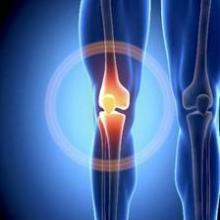Treatment with lithium chloride (LiCl) inhibited the mechanical degradation of articular cartilage induced by the inflammatory cytokine interleukin 1-beta, and long-term exposure to LiCl did not appear to adversely affect joint health or induce arthritis in rats, according to research published in Journal of Orthopaedic Research.
In order to investigate the effect of LiCl on the biomechanical properties of healthy and interleukin 1-beta–treated cartilage, Dr. Clare Thompson of the Queen Mary University of London and her associates examined the effect of long-term dietary lithium on cartilage health in vivo (using a rat model and bovine cartilage explants) and in vitro (using human articular chondrocytes). They noted that chondrocyte viability, matrix catabolism, and the biomechanical properties of bovine cartilage explants treated with LiCl for 12 days were not significantly altered following treatment. In addition, long-term exposure (9 months) to dietary lithium did not induce osteoarthritis in rats, as determined by histological staining, while LiCl did not induce the expression of catabolic enzymes in human articular chondrocytes.
“This study suggests that, in addition to the treatment of bipolar disorder, lithium has the potential to reduce matrix catabolism in OA and the associated loss of mechanical functionality that occurs with disease progression. However, it must be emphasized that lithium is a powerful drug, the use of which must be carefully monitored in humans to prevent the development of negative side effects.”
Read the full article in the Journal of Orthopaedic Research (doi:10.1002/jor.22913).


